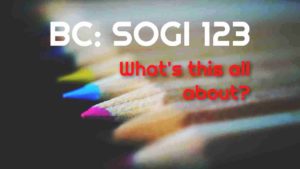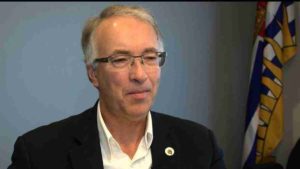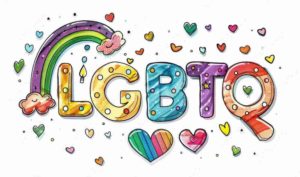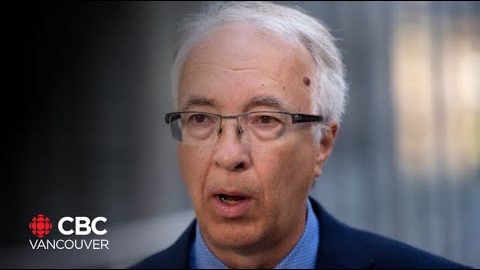
British Columbia’s Pink Shirt Day — an anti-bullying initiative that promotes kindness, respect, and inclusivity — was adopted by then CKNW broadcaster and talk show host Christy Clark in 2007 as a worthy initiative deserving of notice.
Pink Shirt Day became something of a cause célèbre for Ms. Clark, as she sought to raise awareness of the harmful effects of bullying, all the while working towards fostering a supportive educational environment in British Columbia schools for those minority LGBTQ students who were subject to bullying and harassment.
When Ms. Clark became B.C. Premier in 2011, the Pink Shirt Day programme was institutionalized as the B.C. Liberal party sought, in particular, to ensure a ban on bullying in British Columbia schools. Arising from the success of Pink Shirt Day, and aware that bullying of LGBTQ / gender variant children, in particular enrolled in rural schools across the province was an issue of concern, in 2014 Premier Clark asked then B.C. Deputy Minister of Education Rob Wood to work on developing a programme that would protect the interests of LGBTQ and gender variant children.
Mr. Wood approached Lisa Dominato — currently a two-term Vancouver City Councillor, and former Board of Education Trustee with the Vancouver School Board — who was then in the employ of the Ministry of Education, to begin work on the creation of a programme that eventually became known as SOGI 123.

In 2016 in British Columbia, the initiative developed by Ms. Dominato — a programme called Sexual Orientation and Gender Identity (SOGI) 1 2 3 — was implemented in B.C.’s elementary and secondary schools, with the goal of creating safe and inclusive environments for students of all genders and sexual orientations.
The SOGI 123 programme was the first of its kind in Canada, and sought to address the health gap between sexual minority students and their heterosexual peers.
SOGI 123 is a non-mandatory resource initiative available to educators across the province, widely recognized for its success in promoting inclusion and safety for LGBTQ+ students, the programme designed to support educators in creating welcoming and safe environments for students of all sexual orientations and gender identities. The programme provides tools, resources, and lesson plans that foster understanding and respect for diversity in classrooms across the province.
All is well and good with British Columbia’s successful SOGI 123 programme, then?
B.C. Conservative Party leader John Rustad elucidates his antediluvian perspective on SOGI 123.
Nuh-uh, not as long as B.C. Conservative Party leader John Rustad is around.
#bcpoli @JohnRustad4BC @Conservative_BC platform says somethings must be removed immediately from schools. What books would Rustad ban, would SOGI be banned, would he allow demonstrations against SOGI at school doors? pic.twitter.com/wrl3BZ9sQq
— David Schreck (@StrategicThghts) September 2, 2024
You see, John Rustad views SOGI 123 not as an initiative to keep LGBTQ and gender variant children safe in our province. No siree, Bob, he sure doesn’t.
Rather, Mr. Rustad — the far right, Trumpian hater of things he doesn’t understand, and doesn’t want to understand — considers the SOGI 123 programme to be a threat to families with children enrolled in British Columbia’s public education system, so much so that if elected Premier, as a first order of business his government would dismantle SOGI 123, banning use of the programme from our public schools — which, as you might imagine, in time will lead to the deaths of vulnerable tween and teen students with no one and no place any longer to turn to for help.
According to the latest published reports from Statistics Canada, LGBTQ+ and gender variant youth in Canada are four times more likely to attempt suicide than non-LGBTQ+ youth, due to higher levels of stress, marginalization, and bullying that many LGBTQ+ youth experience in school, home, and social environments.
- A 2023 Canadian study found that 33% of LGBTQ+ youth had considered suicide in the previous year, compared to 7% of non-LGBTQ+ youth;
- Among transgender youth in Canada, nearly 50% report having seriously considered suicide, and a large percentage have attempted suicide at least once;
- Suicide is a leading cause of death among LGBTQ+ youth, especially those between the ages of 10 and 24.

As we say above, Conservative Party of British Columbia leader John Rustad has for some years now proved to be a vocal and relentless critic of the SOGI 123 programme, his criticisms focused on claims the programme infringes on parental rights, contributing to what he views as the indoctrination of children by teachers.
- Parental Rights: Rustad has argued that SOGI 123 undermines parental authority by introducing discussions about gender identity and sexual orientation in schools without what he considers adequate parental consent. He has suggested that parents should have more control over the content their children are exposed to in schools, particularly when it comes to sensitive topics like gender and sexuality;
- Indoctrination of Students: Rustad has repeatedly stated that teachers are indoctrinating students through the SOGI 123 programme, by promoting ideas about gender fluidity and LGBTQ+ identities that, in his view, conflict with traditional family values. He has repeatedly made the unsupported and utterly ridiculous and ludicrous statement that he “believes” the SOGI 123 programme teaches children that their gender is fluid and that such teachings are inappropriate for schools, framing it as part of a broader ideological agenda;
- Distribution of Pornographic Materials: Rustad and other members and candidates running for office with the B.C. Conservative Party have wrongly claimed that SOGI 123 distributes inappropriate or even pornographic materials in schools — you’d almost think you were living in Donald Trump’s America, where Rustad lies like he breathes, often and without abandon … Mr. Rustad would seem to have adopted Mr. Trump’s lyin’ “they’ll believe anything you say if you say it often enough” strategy, as the newest and seemingly effective approach to politics in British Columbia.

Rustad’s rhetoric contributes to a divisive political atmosphere in British Columbia, particularly among voters concerned with cultural and social issues.


